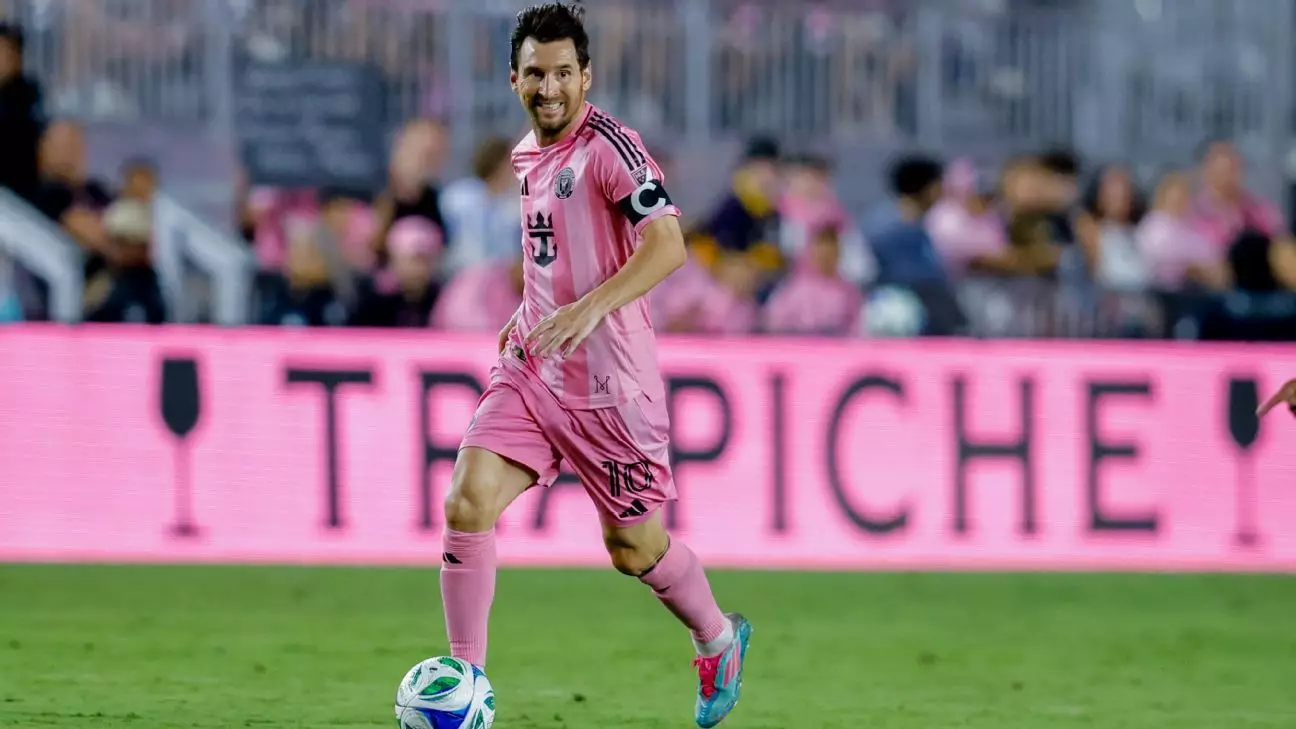Major League Soccer (MLS), with its 30-year history, grapples with a troubling narrative regarding its competitiveness on the international stage. Over three decades, American clubs have collectively claimed just three titles in continental competitions, contrasting dangerously with their Liga MX counterparts who have dominated Concacaf tournaments. D.C. United, LA Galaxy, and Seattle Sounders represent a meager trifecta of victories, raising eyebrows about the capacity of MLS franchises to find their footing in high-stakes matches against international elites. The fact that MLS teams have participated in six of the last eight Concacaf Champions Cup finals but only the Sounders emerged victorious raises doubts: Is progress being made or merely an illusion?
A stark illustration of this disparity was vividly displayed when the Vancouver Whitecaps faced off against Cruz Azul, one of Mexico’s formidable teams. With a disheartening 5-0 defeat, the Whitecaps highlighted the gaping holes in MLS’s competitive fabric. For a league claiming aspirations to establish itself as a leading footballing entity in North America, such an outcome signifies not just a defeat but a fundamental disparity in quality.
The Impending Challenge: FIFA Club World Cup
As fighting words echo from the recent Vancouver-Cruz Azul encounter, the imminent FIFA Club World Cup looms large on the horizon, amplifying the pressure on MLS teams. This prestigious tournament, featuring illustrious clubs from across the globe, will see the likes of Inter Miami, LAFC, and Seattle Sounders going head-to-head against titans such as Paris Saint-Germain, Chelsea, Atlético Madrid, and South American champions Flamengo and Palmeiras. With such daunting adversaries, one can’t help but wonder: Are these MLS clubs equipped to face international giants, especially after a soul-crushing loss at the Concacaf Champions Cup?
It’s easy to romanticize the idea of soccer competition, yet the reality for MLS teams means combative encounters against rosters boasting higher depth and significant financial investment. Vancouver Whitecaps’ Brian White articulated this reality with poise, acknowledging that elite teams capitalize on mistakes—a lesson painfully learned against Cruz Azul. The analysis extends beyond individual matches; it reveals a lack of systemic development and investment relative to Liga MX teams. Cruz Azul’s squad, with a market value vastly exceeding that of Vancouver’s, uncovers a troubling trend where the financial backdrop of competitors often dictates the outcome on the pitch.
The Role of Star Power and Perceptions
Since Lionel Messi’s migration to Inter Miami in mid-2023, there’s a fresh wave of expectations surrounding not only the Herons but the entire MLS brand. The narratives constructed around Messi, alongside other high-profile names like Luis Suárez and Sergio Busquets, elevate the league’s profile. But with that elevated status comes an undeniable pressure: These players are seen as the catalysts for revitalizing the league’s global image.
However, even the addition of world-class talents does not automatically translate into success. Javier Mascherano, Inter Miami’s head coach, has been careful to manage expectations, acknowledging the substantial gulf between MLS and the level of play displayed in European and South American leagues. His honesty resonates with a stark reality. The former Inter stalwart’s perspective highlights that despite being home to superstars, the league’s infrastructure struggles to match the intensity and precision found in global competitions.
In the quest for recognition, performances at the Club World Cup will either reinforce or eclipse the long-held notions of MLS as a ‘retirement league’. Should any of the teams manage to make a significant statement—advancing past the group stages, for instance—it could serve as a turning point in reshaping opinions about the league’s capabilities.
Looking Ahead: The Path to Redemption
As the Club World Cup approaches, the stakes for MLS extend beyond mere wins and losses: This is a chance to reshape perceptions. Statistics from Opta highlight the rankings of participating MLS teams, placing LAFC, Miami, and Seattle in positions that may pose challenges but also opportunities for upsets. With the right mindset and strategy, the tournament could disprove the staid narratives of inadequacy that cling to the league.
Ultimately, success for MLS should not only be measured in titles but by the evolution of its reputation on the international stage. The potential exists to transform adversity into triumph through compelling performances that resonate beyond domestic play. For a league that faces scrutiny and skepticism, the Club World Cup stands as an avenue for redemption. If teams harbor aspirations of raising the league’s profile, they must embrace the challenge. Failure to do so may otherwise perpetuate a narrative of mediocrity, while spirited performances could shift the momentum dramatically in favor of MLS’s growth story.

Leave a Reply